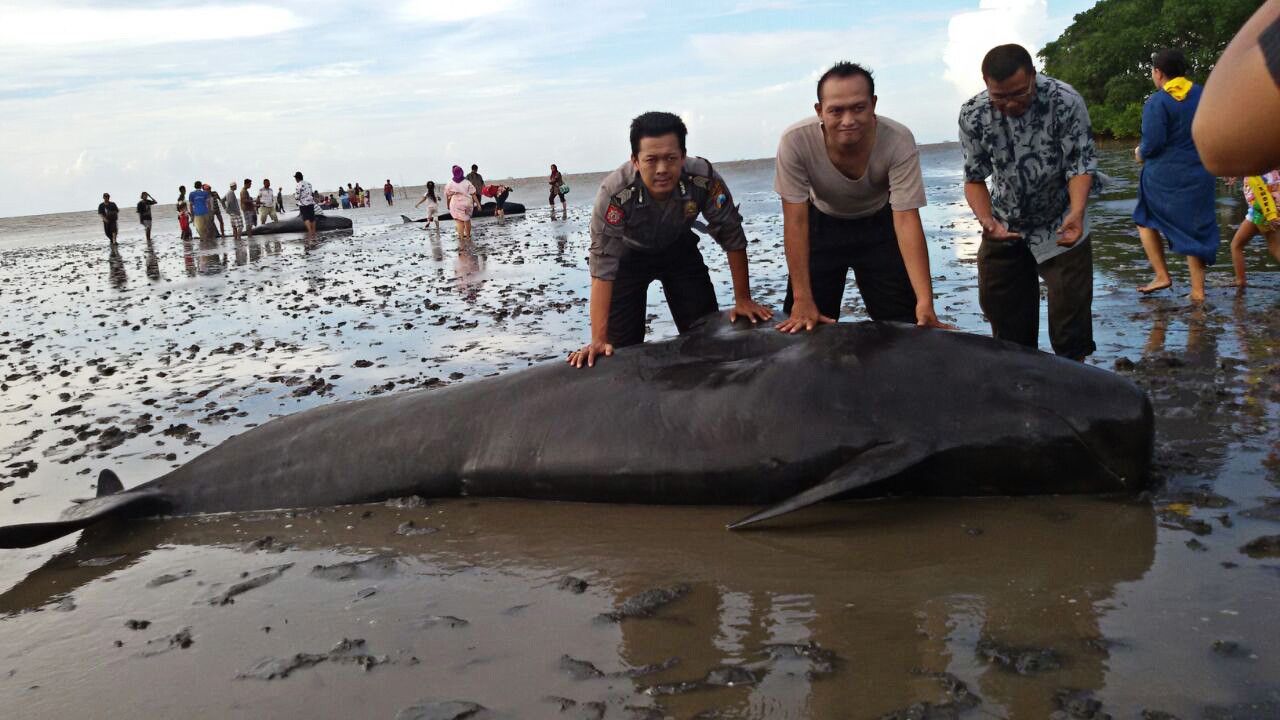Popular Reads
Top Results
Can't find what you're looking for?
View all search resultsPopular Reads
Top Results
Can't find what you're looking for?
View all search resultsLow oxygen levels, salinity cause of beached pilot whales
Decreased oxygen levels and water salinity are thought to be among the causes that led dozens of short-finned pilot whales to wash up on a beach in Randupitu village, East Java, on Wednesday.
Change text size
Gift Premium Articles
to Anyone
D
ecreased oxygen levels and water salinity are thought to be among the causes that led dozens of short-finned pilot whales to wash up on a beach in Randupitu village, Gending district, Probolinggo regency, East Java, on Wednesday.
Data from the Meteorology, Climatology and Geophysics Agency (BMKG) Juanda, Surabaya, reveals that it was likely that strong currents in the northern Java Sea had carried the pilot whales ashore.
According to the data, strong winds of more than 28 knots caused high seas with 2 to 3.5 meter waves. The high waves also caused oxygen level decreases deep below the surface and lowered water salinity, which was accompanied with a sea level rise.
The BMKG added that these three elements had led deep water fish to migrate to the surface, leading many of them to become stuck in shallow waters.
As reported earlier, 32 pilot whales were found on the beach in Randupitu village, around 106 kilometers east of Surabaya on Wednesday.
 Trapped – Several short-finned pilot whales stuck in shallow waters in Probolinggo, East Java, on Wednesday. (Courtesy of the BKSDA East Java/-)
Trapped – Several short-finned pilot whales stuck in shallow waters in Probolinggo, East Java, on Wednesday. (Courtesy of the BKSDA East Java/-)
Head of the East Java Natural Resources Conservation Agency (BBKSDA) Ayu Dewi Utari said that as of noon on Thursday, nine of the pilot whales had died due to lack of oxygen. “Seven whales were found dead on the Randupitu village beach while two others were found at Bentar beach, around 5 kilometers west of the location where the pod of pilot whales were first found,” said Ayu.
ProFauna Indonesia activist Rosek Nursahid said the reason the whales had become beached was not yet known.
However, he added that whales generally became trapped in shallow waters for one of four reasons.
“The most possible reason is, the group of whales were foraging for food, which had accumulated in the shallow water. They were then carried by strong currents onto the beach and then could not return to the deep sea,” said Rosek.
A team of veterinarians from the University of Airlangga, Surabaya, have been dispatched to remove the dead whales and perform an autopsy to reveal the cause of their deaths. (ebf)










